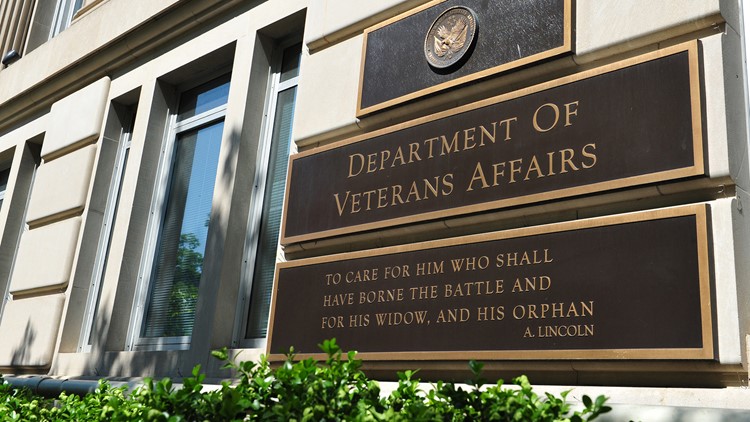Department of Veterans Affairs officials at nearly every level knew for years about sterilization lapses and equipment shortfalls at the Washington, D.C., VA Medical Center, but they were either unwilling or unable to fix the problems, an inspector general investigation found. The failures put patients at risk and squandered taxpayer dollars.
Clinicians put patients under anesthesia before realizing they didn’t have equipment to perform scheduled procedures. In some cases, they canceled and redid surgeries later. In others, they ran across the street to a private-sector hospital to borrow supplies midprocedure.
Investigators found more than 1,000 boxes of unsecured documents that contained veterans’ personal information — including medical records — in storage facilities, the basement and a dumpster.
The hospital paid exorbitant amounts for supplies and equipment, including $300 per speculum it could have bought for $122 each, and $900 each for a special needle that was available for $250.
In one case, the hospital rented in-home hospital beds for three patients for three years — at a total cost of $877,000. The medical center could have bought the three beds for $21,000.
The inspector general’s findings go beyond the Washington, D.C., VA medical center and could help explain repeated crises in recent years at VA medical centers across the country, where problems have continued despite repeated warnings.
Local, regional and national VA officials knew for years about widespread falsification of patient wait times before revelations that dozens of veterans died waiting for appointments at the Phoenix VA in 2014 led to a national audit and comprehensive effort to stop the practice nationwide. The same with massive rates of opiate prescriptions doled out at the VA medical center in Tomah, Wis., until news reports that a veteran died from mixed drug toxicity at the hospital in 2015 forced VA officials to reel in opiate prescription rates at the Wisconsin facility and across the nation.
In the Washington D.C., probe, the inspector general found once again that multiple local, regional and national officials had been informed of the problems but did not fix them. Investigators concluded “a culture of complacency and a sense of futility pervaded offices at multiple levels.”
“In interviews, leaders frequently abrogated individual responsibility and deflected blame to others,” the investigation report says. “Despite the many warnings and ongoing indicators of serious problems, leaders failed to engage in meaningful interventions of effective remediation.”
They recommended establishing clearer lines of accountability at all levels of the agency.
Investigators did not find evidence that VA Secretary David Shulkin or his top deputies had been informed of the problems. Shulkin fired the Washington medical center director last year after the inspector general issued an emergency preliminary report concluding patients were in imminent danger at the facility. He also dispatched teams of specialists from headquarters to inventory and ensure adequate supplies were available to treat patients.
In their response to this week's inspector general report, VA officials said the agency has purchased more than $3 million worth of surgical instruments, instituted a reliable inventory system, and is seeking to clarify lines of authority and accountability
"As we move forward, we are putting in place a reliable pathway" for staffers at all levels to "escalate high-priority concerns to senior leadership for prompt action and follow up," wrote Carolyn Clancy, executive in charge of the Veterans Health Administration. "This is woven into our on-going modernization efforts. I am dedicated to continued and sustained improvement and incorporating lessons learned across our network."
The inspector general began investigating the D.C. hospital after receiving an anonymous tip in March 2017 about supply and financial mismanagement. After the preliminary emergency report, the probe expanded to include more than 40 investigators, including auditors, health care specialists and law enforcement agents. Among the key findings:
• A review of 124 veteran patient records found problems with supplies or instruments in 74 of the cases between 2014 and 2017. One surgery was canceled after the patient was already under anesthesia because a retractor was unavailable — it had not been sterilized since its last use a week earlier. A surgeon had to improvise when a tool used to prepare a skin graft was broken and the graft failed. A surgical staff member had to run to a private-sector hospital to borrow mesh to repair a hernia midprocedure.
• The hospital had more than 375 patient safety incidents because of supply problems between 2014 and 2016 but nearly half of them weren’t entered into a national VA database that tracks such incidents. In the local system where staff did track them, they failed to record how severe they were.
• Investigators seized more than 1,300 boxes of unsecured records from two warehouses, the hospital basement and a large trash dumpster in April 2017. Of those, 81% contained confidential patient information, including medical scans and records dating to the 1970s.
• They found more than 500,000 items which had been sitting for years in an off-site warehouse, including $80,000 worth of refrigerators, $25,000 worth of blood pressure cuffs, and 185 beds the hospital had acquired but found unusable. Two forklifts purchased for $44,000 in 2013 for use in the warehouse were too big to actually operate there. So hospital staff just parked them.
• Between 2013 and 2017, local, regional and national VA officials received at least 10 formal reports identifying issues with supplies and equipment, including medical instruments, that remained unaddressed last year.
The VA says it has secured the warehouse and disposed of excessive equipment, directed better tracking of patient safety reports, and instituted stricter purchasing controls.
The acting medical center director, Lawrence Connell, said he has designated a records manager and a privacy specialist at the hospital to make determinations about the unsecured patient records.
"The Privacy Officer determined that there was not a need to notify Veterans because there was no evidence of improper access to their patient information," he wrote. "In the future, if the Privacy Officer discovers any evidence of improperly accessed patient information, the Privacy Officer will make the necessary notifications to veterans."



